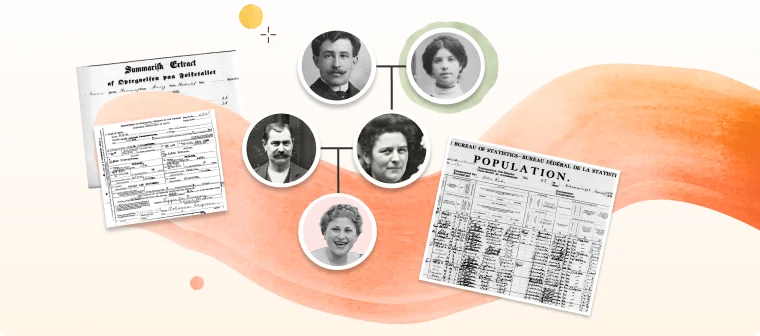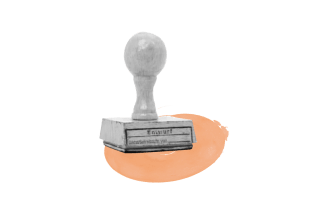Name Directory by Last Name: Last Names Starting with Aa
Explore millions of names to discover rich genealogical details and uncover your family's history
Enter a name to research
Last name meanings and origins
- Aaron
The surname Aaron has deep historical roots, primarily derived from the Hebrew name Aharon, which means "mountain of strength" or "exalted." It first appeared in ancient texts, notably in the Hebrew Bible, where Aaron is recognized as the elder brother of Moses and the first high priest of the Israelites. This biblical association has imbued the name with significant cultural and religious importance, particularly within Jewish communities.
- Aarts
The surname Aarts has its historical roots in the Netherlands, particularly in the region of North Brabant. It is derived from the given name "Aart," which is a Dutch variant of "Arnold," meaning "eagle power." The surname likely emerged during the Middle Ages, a period when surnames began to be adopted for identification purposes, often reflecting personal names, occupations, or geographical features.
- Aarons
The surname Aarons has its historical roots in the Hebrew name "Aharon," which is often associated with the biblical figure Aaron, the brother of Moses. The name itself is believed to mean "exalted" or "high mountain," reflecting a sense of nobility or elevated status.
- Aaronson
The surname Aaronson has its roots in Jewish heritage, particularly among Ashkenazi Jews, where it is derived from the Hebrew name "Aharon," meaning "mountain of strength" or "exalted." The suffix "-son" indicates "son of," thus Aaronson can be interpreted as "son of Aaron." This surname likely emerged in the Middle Ages, particularly in Eastern Europe, where Jewish communities began adopting surnames for administrative purposes. Occupations associated with the Aaronson name may have included roles in trade, scholarship, or religious leadership, reflecting the diverse contributions of Jewish individuals to their communities.
- Aanensen
The surname Aanensen has its roots in Scandinavian countries, particularly Norway, where it is derived from the patronymic naming tradition. The suffix "-sen" indicates "son of," suggesting that the name Aanensen originally referred to the son of an individual named Aanen, which itself is a variant of the name Aane, meaning "the one who is gracious" or "merciful." This naming convention became prevalent in the Viking Age and continued into the Middle Ages, reflecting the importance of lineage and familial ties in Norse culture.
- Aas
The surname Aas has its historical roots primarily in Scandinavia, particularly Norway, where it is derived from the Old Norse word "áss," meaning "god" or "a deity." This surname likely originated as a topographical name for someone living near a hill or a mound, which were often associated with ancient burial sites or places of worship. Over time, the name Aas became associated with various occupations, particularly in rural communities where individuals might have been involved in farming or land management.
- Aasen
The surname Aasen has its roots in Scandinavia, particularly Norway, where it is derived from the Old Norse word "ás," meaning "god" or "deity," combined with the suffix "-en," which can denote a place or a characteristic. Historically, surnames in this region began to emerge in the late Middle Ages, around the 14th century, as a means of identifying individuals based on their lineage, occupation, or geographical features.
- Aase
The surname Aase has its historical roots primarily in Scandinavia, particularly in Norway and Denmark. It is derived from the Old Norse word "ás," which means "god" or "deity," and is often associated with the Norse pantheon, particularly the Aesir gods.
- Aanonsen
The surname Aanonsen has its roots in Scandinavian culture, particularly in Norway, where it is derived from the patronymic naming tradition. The name translates to "son of Aanon," with "Aanon" being a variant of the name "Anan," which itself has biblical origins, meaning "to answer" or "to respond." This naming convention was prevalent in the Viking Age and continued into the Middle Ages, where surnames began to solidify as family identifiers.
- Aalbers
The surname Aalbers has its historical roots in the Netherlands, particularly in the region of Friesland, where it is believed to have originated. The name is derived from the Dutch word "aal," meaning "eel," and "ber," which can be interpreted as "bear" or "to carry." This suggests that the name may have originally been associated with individuals who were involved in fishing or the trade of eels, a significant occupation in the waterways of the region.
- Aamodt
The surname Aamodt has its historical roots in Norway, where it is derived from the Old Norse elements "á," meaning "river," and "mót," meaning "meeting" or "confluence." This suggests that the name originally referred to a geographical feature, likely a place where rivers converge. The surname first appeared in historical records in the medieval period, and as Norway developed, so did the use of surnames, often reflecting the landscape, occupations, or social roles of the individuals.
- Aalders
The surname Aalders has its roots in the Netherlands, particularly in the region of Friesland, where it is believed to have originated in the medieval period. The name is derived from the Dutch word "aalder," which translates to "alder," a type of tree commonly found in wetland areas.
- Aagaard
The surname Aagaard has its historical roots in Scandinavia, particularly in Denmark, where it is derived from the Old Norse elements "á," meaning "river," and "gard," meaning "enclosure" or "yard." This suggests that the name originally referred to a homestead or farm located near a river, indicating a connection to the land and agriculture. The surname first appeared in written records during the medieval period, with its usage becoming more common as surnames became hereditary in the 16th and 17th centuries.
- Aalto
The surname Aalto has its roots in Finland, deriving from the Finnish word for "wave." This name likely originated in the coastal regions, where the natural landscape and maritime culture played a significant role in the lives of the inhabitants. Historically, surnames in Finland began to be adopted in the late 19th century, and Aalto may have been used to denote individuals who lived near water or were involved in fishing or maritime activities.
- Aagesen
The surname Aagesen has its historical roots in Scandinavia, particularly in Denmark and Norway, where it is derived from the Old Norse personal name "Ággr," meaning "awe" or "fear." The suffix "-sen" indicates "son of," which was a common patronymic naming convention in these regions. The surname likely first appeared in the medieval period, as surnames became more standardized in the 12th to 15th centuries.
- Aaltonen
The surname Aaltonen has its roots in Finland, deriving from the Finnish word "aalto," which means "wave." This surname likely originated in the late Middle Ages, a period when surnames began to be adopted more widely in Finland, particularly in the 16th century. The name may have been associated with geographical features, such as proximity to bodies of water or regions characterized by rolling hills and waves.
- Aartsen
The surname Aartsen has its historical roots in the Netherlands, particularly in the region of Friesland, where it is believed to have originated. The name is derived from the Dutch given name "Aart," which is a diminutive of "Aart," itself a variant of "Arnold," meaning "eagle power." The suffix "-sen" or "-s" indicates "son of," suggesting that Aartsen originally denoted "son of Aart." Over time, the surname became associated with various occupations, particularly in agriculture and trade, reflecting the agrarian lifestyle of the region.
- Aaberg
The surname Aaberg has its roots in Scandinavian heritage, particularly within Norway and Sweden. The name is believed to derive from the Old Norse elements "á," meaning "river," and "berg," meaning "mountain" or "hill," suggesting a geographical connection to landscapes characterized by rivers and hills.
- Aames
The surname Aames has its historical roots primarily in England, where it is believed to have originated as a variant of the surname Ames, which itself is derived from the Old French personal name "Ame," meaning "beloved." The name likely first appeared in the medieval period, around the 12th century, and was associated with individuals who held various occupations, including farming and craftsmanship. Over time, the surname Aames evolved, reflecting the social roles of its bearers, who were often involved in local trades or community leadership.
- Aadnesen
The surname Aadnesen has its roots in Scandinavian culture, particularly in Norway, where it is derived from the patronymic system common in the region. The name literally means "son of Aadne," with "Aadne" being a variant of the Old Norse name "Áðr," which translates to "forefather" or "ancestor." This patronymic naming convention emerged around the 12th century, reflecting the lineage and familial connections that were vital in Norse society.
- Aalberts
The surname Aalberts has its roots in the Dutch and Flemish regions, deriving from the given name Albert, which itself comes from the Germanic elements "adal," meaning noble, and "beraht," meaning bright or famous. The name Aalberts likely emerged in the Middle Ages, a period when surnames began to be adopted more widely in Europe, particularly in the Low Countries.
- Aasland
The surname Aasland has its roots in Norway, where it is believed to have originated from a geographical feature or a specific location. The name itself can be broken down into elements that suggest a connection to the landscape, with "aas" meaning "hill" or "ridge" in Old Norse, and "land" referring to "land" or "ground." This indicates that the surname likely developed as a toponymic identifier for individuals or families living near notable hills or elevated terrains.
- Aardema
The surname Aardema has its roots in the Netherlands, particularly in the region of Friesland, where it is believed to have originated. The name is derived from the Dutch words "aard," meaning "earth" or "soil," and "ema," which can be interpreted as "home" or "place." This suggests a connection to the land, possibly indicating that the original bearers of the surname were farmers or landowners.
- Aadland
The surname Aadland has its roots in Scandinavian heritage, particularly within Norway. It is believed to derive from the Old Norse elements "á," meaning "river," and "land," meaning "land" or "ground." This suggests that the name may have originally referred to someone who lived near a river or a specific geographical feature associated with water.
- Aalderink
The surname Aalderink has its roots in the Netherlands, particularly in the region of Overijssel. It is believed to be a patronymic surname, derived from the given name "Aald," which is a diminutive of "Aaldert," meaning "old" or "wise." The suffix "-ink" typically indicates "son of" in Dutch, suggesting that the name originally referred to the descendants of a person named Aald or Aaldert.
- Aaker
The surname Aaker has its historical roots primarily in Scandinavia, particularly in Norway and Sweden, where it is believed to have originated as a topographic surname. The name is derived from the Old Norse word "ákr," meaning "field" or "acre," which suggests that the original bearers of the surname were likely associated with agricultural land or farming.
- Aamundsen
The surname Aamundsen has its roots in Scandinavian heritage, particularly within Norway. It is derived from the Old Norse personal name "Ámundr," which combines the elements "á," meaning "river," and "mund," meaning "protector" or "guardian." This suggests that the name may have originally been associated with individuals who lived near a river or were seen as protectors of their communities.
- Aanonsdatter
The surname Aanonsdatter has its roots in Scandinavian naming traditions, particularly in Norway, where it is derived from the patronymic system. The name literally means "daughter of Aanon," with "Aanon" being a variant of the name "Anund," which itself has Old Norse origins.
- Aanensdatter
The surname Aanensdatter has its roots in Scandinavian naming traditions, particularly in Norway, where it is derived from the patronymic system. This system was prevalent from the Middle Ages, where surnames were formed by combining the father's name with the suffix "-datter," meaning "daughter of." Thus, Aanensdatter literally translates to "daughter of Aanen," with "Aanen" being a given name that may have originated from the Old Norse name Ánarr, which means "the one who is favored." Historically, this surname would have been used to denote lineage and familial connections, often reflecting the social roles of women in society, as they were identified in relation to their fathers.
- Aamot
The surname Aamot has its historical roots in Norway, where it is believed to have originated from geographical features, specifically the name of a farm or a locality. The name itself is derived from Old Norse elements, with "á" meaning "river" and "mót" meaning "meeting" or "confluence," suggesting a location where rivers meet.
- Aarsen
The surname Aarsen has its historical roots in the Netherlands, particularly in the region of North Holland. It is believed to derive from the Dutch word "aars," which translates to "arse" or "bottom," potentially indicating a geographical feature or a topographical location.
- Aaby
The surname Aaby has its historical roots in Scandinavia, particularly in Denmark and Norway, where it is believed to have originated. The name is derived from the Old Norse word "á," meaning "river," and "by," meaning "farm" or "settlement," suggesting that it was originally a toponymic surname for individuals living near a river settlement.
- Aakre
The surname Aakre has its roots in Scandinavia, particularly Norway, where it is derived from the Old Norse word "ákr," meaning "field" or "acre." This suggests that the name was likely associated with agricultural practices, indicating that the original bearers may have been farmers or landowners. The surname first appeared in historical records during the medieval period, as surnames began to be adopted more widely in Scandinavia.
- Aarhus
The surname Aarhus has its roots in Denmark, specifically linked to the city of Aarhus, which is one of the oldest cities in the country, founded around the 8th century. The name itself is believed to derive from the Old Norse word "ár," meaning "river," and "hus," meaning "house" or "dwelling," suggesting a geographical connection to the area's waterways.
- Aarden
The surname Aarden has its historical roots in the Netherlands, particularly in the region of Flanders. It is believed to derive from the Middle Dutch word "aarde," meaning "earth" or "ground," which may have originally referred to someone who lived near a notable geographical feature, such as a hill or a fertile area.
- Aasmundsen
The surname Aasmundsen has its roots in Scandinavia, particularly Norway, where it is derived from the Old Norse personal name Aasmundr, which combines the elements "Ás," meaning "god," and "mund," meaning "protector" or "guardian." This surname first appeared in historical records during the Viking Age, a period marked by Norse exploration and settlement across Europe. Over time, Aasmundsen evolved as a patronymic surname, indicating "son of Aasmund," which was a common practice in Scandinavian naming conventions.
- Aagard
The surname Aagard has its roots in Scandinavian heritage, particularly in Denmark and Norway. It is derived from the Old Norse elements "á," meaning "river," and "gard," meaning "enclosure" or "yard." This suggests that the name may have originally referred to a homestead or farm located near a river, indicating a connection to the land and agriculture.
- Aalten
The surname Aalten has its historical roots in the Netherlands, particularly in the region of Gelderland. It is believed to have originated from the name of a village called Aalten, which is situated in the eastern part of the country.
- Aanes
The surname Aanes has its roots in Scandinavia, particularly Norway, where it is derived from the Old Norse personal name "Áni," which means "a river" or "a stream." The name likely originated as a toponymic surname, indicating that the first bearers lived near a notable geographical feature, such as a river or a stream. Over time, the surname Aanes became associated with various occupations, particularly in agrarian societies where proximity to water sources was crucial for farming and fishing.
- Aasheim
The surname Aasheim has its roots in Norway, deriving from the Old Norse elements "ás," meaning "god," and "heimr," meaning "home" or "village." This suggests that the name may have originally referred to a settlement or homestead associated with a deity or divine presence, reflecting the Norse belief system prevalent in the region during the Viking Age. The surname likely first appeared in the medieval period, as surnames became more common in Scandinavia for purposes of identification and land ownership.
Start your family tree for free
Start by entering a few names and MyHeritage will do the rest, so you can make meaningful discoveries

Explore historical records

Explore 1,810,427,080 census and voter list records to get a detailed snapshot of your ancestors' lives. Discover names, ages, occupations, family relationships, residences, and much more.

Explore 4,647,704,406 birth, marriage, and death records. Uncover valuable details about major family milestones and find names, dates, places, occupations, and residences of your ancestors and relatives.

Search 266,544,192 military records and discover the stories of courage and resilience in your family history. Military records include enlistment dates, ranks, locations, and even physical descriptions.
Embark on a fascinating journey to discover your family history

Start by adding a few names. Myheritage's automatic matching technology will help you expand your family tree and delight you with new discoveries.

Reveal your ethnic origins and find relatives you never knew existed with our simple DNA kit.

Dive into MyHeritage's international collection of 36.7 billion historical records - start with a name of an ancestor and see what our collections can reveal about your family history.
About MyHeritage

MyHeritage is the leading global platform for family history. It enriches the lives of people worldwide by enabling them to uncover more about themselves and where they belong. With a suite of intuitive products, billions of historical records, an affordable at-home DNA test, and AI-powered photo tools, MyHeritage creates a meaningful discovery experience that is deeply rewarding. The MyHeritage platform is enjoyed by tens of millions of people around the world who treasure and celebrate their heritage.








